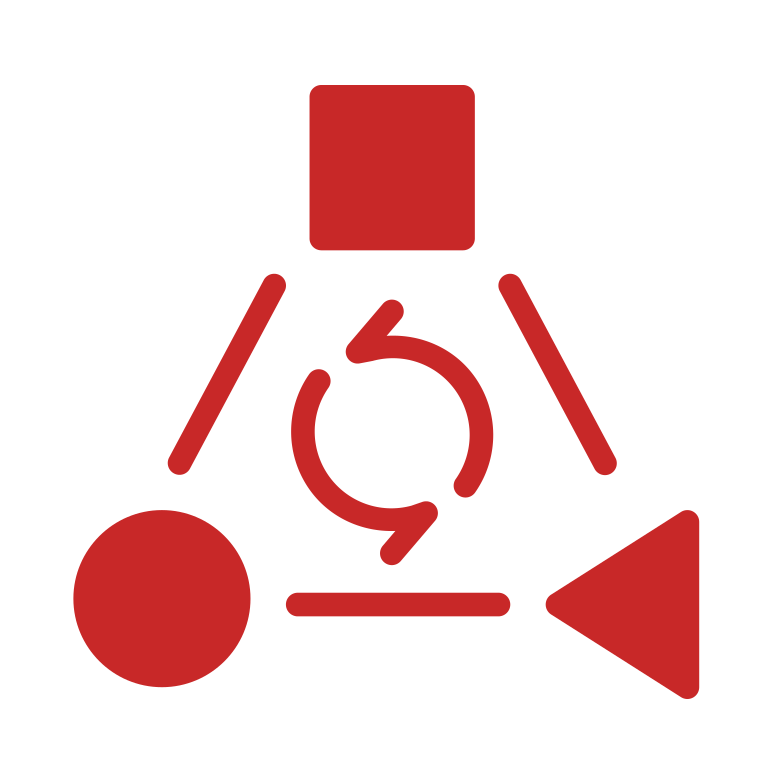Inspect and Adapt
Inspect and Adapt lies at the heart of the agile mindset – its name conjures up the flexible and responsive nature of agile behaviours. Whatever we do we encounter successes and failures. Inspect and Adapt gives us the mechanisms to understand root causes of success and of failure, so that we can benefit from them both.
In A Nutshell
When we are successful, we should try to understand why we have been successful. Then we can repeat those useful behaviours to make our future efforts even more successful. When we fail, we similarly try to understand why we have failed. With this understanding we can seek to avoid the negative impact of problematic behaviours. This reduces the risks of failure in future activities.
Considerations
-
This behaviour is so fundamental to the agile mindset that it should play some role in everything we do. It is a constant behaviour that should become second nature to us.
As individuals – we inspect our interactions with others and with groups to learn how we can adapt to become a more effective colleague
As teams – we inspect our work and how we perform it, so that we can adapt to create higher quality outcomes more efficiently
As groups of teams – we inspect the status of the products and services we are responsible for to ensure
As organisations – we inspect our performance against organisational goals and adapt our structures, culture, and ways of working to make better, faster progress towards those goals.
-
The effective application of inspect and adapt requires us to be as objective as possible. The measurement and analysis of data is central to our improvement activity. The type of data and the way we gather it will depend on the scale and nature of the things we are inspecting and adapting.
Repetitive work by teams is suited to statistical analysis of metrics such as cycle time. The modification of personal behaviours in a group context may be better served through feedback elicited from colleagues.
-
Experimentation is key to adaptation. Try-before-you-buy allows us to evaluate new practice without huge investments of time and effort. If the experiment demonstrates that our new practice isn’t helping, then we can return to our previous way of working or try something new.
This fits with our principle of Experiment Everywhere.
Customer Focus
Delivering new and improved features and services to our customers is essential to maintaining a competitive advantage. If we deliver too slowly customers will use competitive products that have more and better features. If we deliver too quickly the quality of our features and services will decline and Quality of Service will suffer.
Product health reflects the understanding of the goals of the product, the direction of product development and immediate priorities for work. For a healthy product we need to ensure that we have a clear strategy, roadmap and backlog of work. To achieve these goals mutual commitment from the team and from the customer are essential.
Team Focus
Team health sums up the ability of the team to work together as a stable, coherent group. Collaboration is facilitated by the quality of the relationships between the team members, founded on a culture of trust. Healthy teams are teams that are able to disagree and use that disagreement to improve the work they are doing and how that work is done.
Contextual Focus
The health of the organisation reflects the quality and sustainability of the culture that has been established. A healthy culture focuses on openness and trust. Leaders sustain this by clearly communicating the demands of the organisation’s culture and by consistently modelling the values and behaviours inherent in that culture.
Supporting Principles
Data helps us to analyse opportunities and problems objectively. We are more likely to make better experiments if our decisions are based on data.
A culture of feedback, transparency and experimentation provides the supporting context for learning, for improvement and for sharing knowledge more widely.
When we lack clarity over the way to improve, we use experiments to quickly evaluate different approaches and to select the combination of changes that provide the best benefit.
We validate our work and our ways of working by seeking frequent feedback from customers, leaders, and other stakeholders. We respond rapidly and transparently to requests for feedback from others. Frequent feedback gives many opportunities to adjust requirements, priorities, and ways of working to better need stakeholder needs.
We seek feedback frequently. It provies qualitative information to help us accelerate learning and adopt our ways of working.
We take advantage of every opportunity to learn from events and from experience. We learn as teams and as individuals. A key part of the resilience of the agile mindset is how we react to the failures that we will inevitably experience as we work on complex, adaptive problems. Our resilient response is to treat a failure as an opportunity to learn. We seek the causes of failure and to learn how to avoid those causes in the future.
Learning is the heart of adaptation. When we inspect and adapt we can learn both from our failures and from our successes. We apply new knowledge, wherever it is obtained, to improve our work.
We want to deliver the biggest benefit at the lowest cost. When we have different ways of addressing the same problem we try the simplest first. We only adopt more complex changes if simple changes do not deliver enough benefit.


















What’s the link between the values of the Stoics and our desire to retrospect? Read on and find out if ancient wisdom can help you inspect and adapt more effectively.